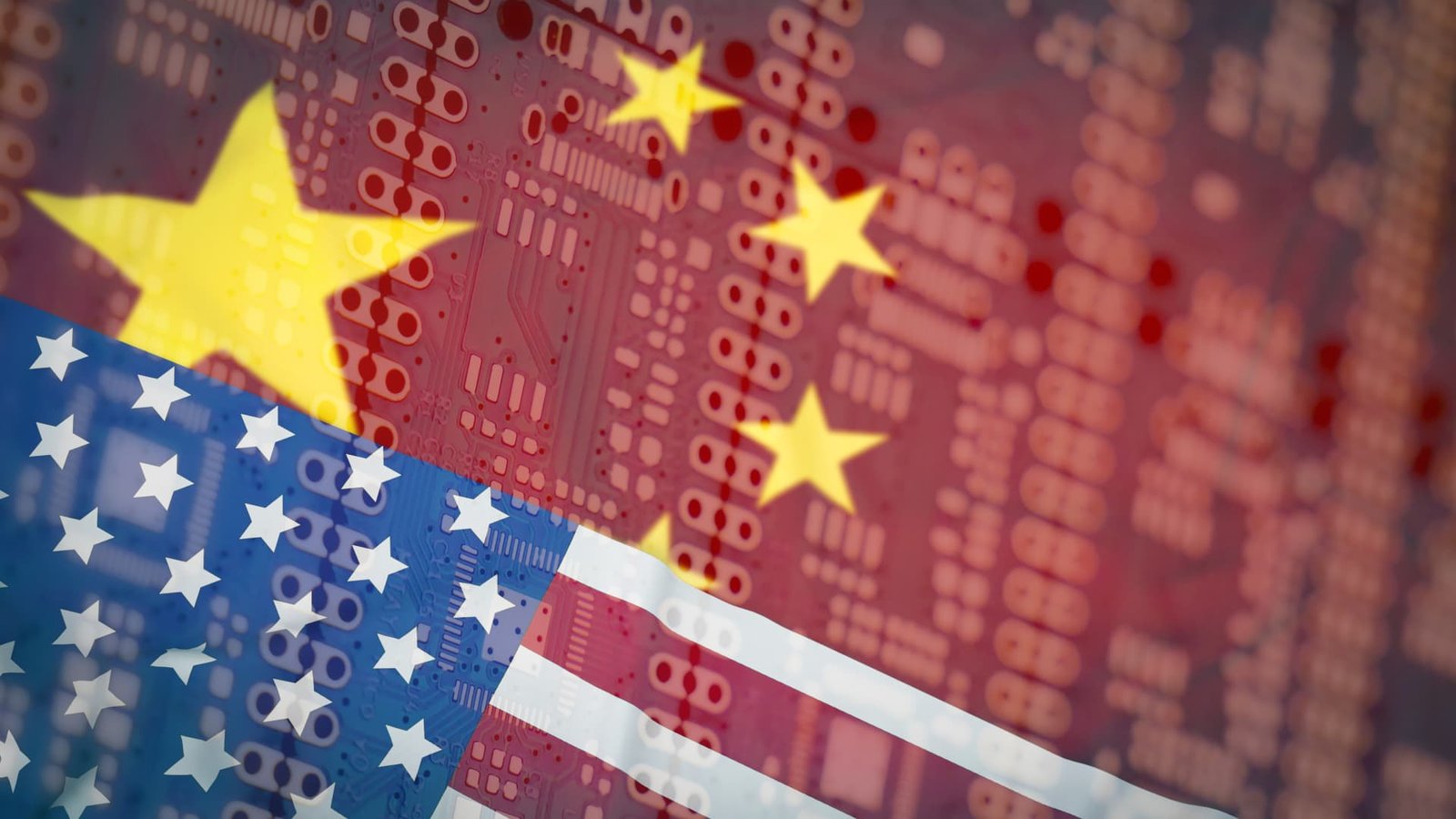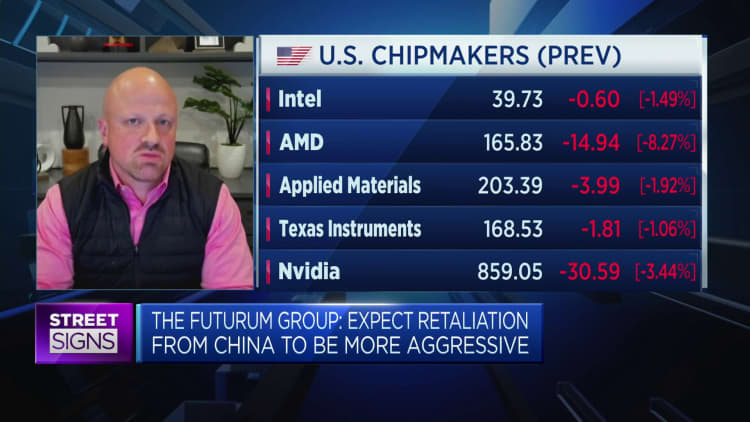Physical Address
304 North Cardinal St.
Dorchester Center, MA 02124
Physical Address
304 North Cardinal St.
Dorchester Center, MA 02124


China’s race to develop smarter-than-human artificial intelligence may put it ahead of the United States, but such breakthrough technology could also weaken the ruling Communist Party’s hold over the world’s second-largest economy.
That’s according to prominent artificial intelligence scientist Max Tegmark, who told CNBC that artificial general intelligence (AGI) is closer than we think, and the narrative of the geopolitical battle between the US and China to build the smartest AI is a “suicide race.”
Although there is no single definition of AGI, it is widely believed to refer to AI that can outperform humans.
Applications such as ChatGPT, which allow users to ask a chatbot for answers, have become popular. But many AI companies are racing to develop the next level with AI that has human-level intelligence.
Sam Altman, CEO of OpenAI, has said that AGI could be achieved by 2025. While there are other big names in the tech industry who also think AGI is close, many others think true AGI is still very far away.
As well as competition between tech companies, there is also a geopolitical battle between the US and China for dominance in fields ranging from AI to chips. While it’s often portrayed as a race to be first in the latest technology, Tegmark said that’s not the correct framework.
“I think of this battle, this geopolitical battle to create AGI in the first place, as the ‘Hopi War,'” Tegmark told CNBC last month. “I call it the ‘Hopi War’ because it’s fueled by… a false hope that we can control AGI.”
Tegmark is president of the Future of Life Institute, a think tank that last year wrote a letter inviting AI labs stop the development of advanced AI systems. The letter was signed by major tech names including Tesla executive director Elon Musk. Tegmark’s concern is that artificial intelligence is advancing rapidly with very few guardrails and cannot be controlled if it begins to outperform humans.
“We’re much closer to building AGI than we are to figuring out how to control it. And that means the AGI race is not an arms race, it’s a suicide race,” Tegmark said.
According to Tegmark, China has little incentive to build AGI. The AI scientist recalled a story in which Elon Musk told him about a “high-level meeting” for the Tesla boss with Chinese government officials in early 2023. Musk told the Chinese government that if AGI was built, China “would not be controlled by the Communist Party, but by a superintelligence,” Tegmark said.
“(Musk) got a very strong reaction. Some of them really hadn’t thought about it, and less than a month later, China came out with its first AI regulations,” Tegmark said. referring to the new regulation governing generative AI.
China’s Ministry of Foreign Affairs was not available for comment on this anecdote. CNBC also reached out to Tesla for a response from Musk.
China wants to challenge the US in artificial intelligence. Chinese tech giants have launched their own AI models.
Niphon | Istock | Getty Images
“The US doesn’t have to convince China not to build AGI. Even if the US didn’t exist, the Chinese government would have an incentive not to build it because they want control,” Tegmark said.
“The last thing they want is to lose that control.”
AI is a strategic priority for the Chinese government. The country’s largest companies, for example AlibabaHuawei and Tencent have been develop your own AI models. The capabilities of these models are also evolving.
China was also one of the first countries in the world to introduce regulation various aspects of AI. The country’s internet is heavily censored, and any information that appears to contradict Beijing’s ideology is blocked. OpenAI ChatGPT is banned and it is well noted that chatbots in China will not respond to questions related to politics and topics considered sensitive by the Communist Party.
The country’s approach to AI is therefore an attempt to drive innovation while balancing its own interests. China is likely to take a similar approach when it comes to AGI, according to analysts.
“I wouldn’t count on China to limit its AI capabilities because it fears that such technologies will threaten the party’s power. Similar predictions were made about the Internet, they all turned out to be false,” Kendra Schaefer, a partner at Trivium China, a consultancy. said CNBC.
“China will try to dominate AGI while creating a technological regulatory apparatus that limits what AGI can do domestically.”
Despite Tegmark’s view that the race to create AGI is a “Hopi war,” geopolitics remain front and center between the US and China when it comes to technological development.
“Right now, China is looking at AI through two lenses: geopolitical power and domestic growth,” said Abishur Prakash, founder and geopolitical strategist at The Geopolitical Business, a Toronto strategy consultancy.

“Through AI, China hopes to change the balance of power around the world, for example by creating a new export model. And in parallel, China wants to power its economy in new ways, from government efficiency to business applications,” Prakash told CNBC.
The US has pursued a policy of trying to limit China’s access to key technologies, mainly semiconductors such as Nvidianeeded to train more advanced AI models. China has responded by trying to build its own domestic chip industry.
Technologists have warned of some risks and dangers when AGI finally arrives. One theory is that without guardrails, artificial intelligence will be able to improve itself and develop new systems on its own.
Tegmarks believes that both the US and China will be aware of all such risks, which will force the governments of both countries to come up with regulations on AI security separately.
“So my optimistic way forward is that the U.S. and China unilaterally impose national security standards to prevent their companies from harming and building uncontrollable AGI, not to appease rival superpowers, but just to protect themselves,” Tegmark said.
“After that happens, though, there’s this really interesting phase where the U.S. and China are like, wait, how can we guarantee that North Korea isn’t going to build an AGI or whatever? And then the U.S. and China now have an incentive to move forward. the world to add them to the AGI moratorium.”
Indeed, governments are already trying to work together to figure out how to create regulations and frameworks around AI. Last year, the UK hosted an AI security summit attended by both the US and China to discuss potential guardrails around the technology.
But regulation and regulation around AI is currently fragmented. this year, The European Union passed the AI Actthe first major law governing technology in the world. China has its own set of regulations, while many other countries have yet to begin developing any regulations.
Tegmark’s hopes for coordination around AI security are echoed by others.
“When the dangers of competition outweigh the rewards, countries will ideally be motivated to come together and self-regulate each other,” Trivium’s China Schaefer said.
“Indeed, some Chinese policymakers have advocated avoiding this potential issue and creating an international governing body under the UN, similar to the International Atomic Energy Agency, so Beijing wants to create a global governing body,” she said. said.